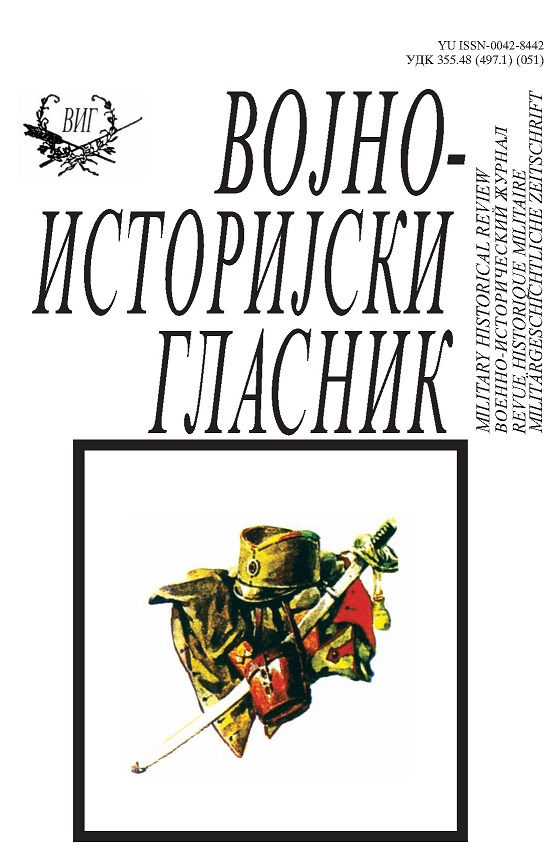Војна сарадња између Југославије и Италије крајем 60‐их и почетком 70‐их година 20. века
Military Cooperation between Yugoslavia and Italy in late 1960s and early 1970s
Author(s): Biljana Mišić IlićSubject(s): Diplomatic history, Military history, Political history, International relations/trade, Post-War period (1950 - 1989)
Published by: Institut za strategijska istraživanja
Keywords: Yugoslavia; Italy; army; cooperation; visits; military relations; navy; military attaches; political crisis;
Summary/Abstract: Military relations between Yugoslavia and Italy were the slowest to relieve of the burden left as the legacy of the World War Two and the subsequent turbulent developments, the central one among them being the unresolved issue of the interstate border and the destiny of the city of Trieste. Cooperation between the two states’ armies commenced only in mid1968, more than two decades after the end of the World War Two, on the occasion of visit of an Italian naval unit to Yugoslavia. After the events in Czechoslovakia in 1968 and the improvement of overall Yugoslav-Italian relations, military cooperation was intensified as well. In addition to the extension of contacts of the two navies, which reflected in official and unofficial visits of warships, the cooperation was expanded to the visiting lecturers at military academies and improved treatment of military attaches. Particularly important for further development of military cooperation was the visit of Josip Broz Tito to Italy in March 1971, after which the Yugoslav party offered a very close military cooperation and even, according to the Italians, a conclusion of a secret military agreement between the two states. Despite the fact that this did not happen, interarmy cooperation continued to develop, and in mid1972 the Chief of the General Staff of the Italian Army, General Francesco Mereu, visited Yugoslavia, whereas the Chief of the General Staff of the Yugoslav People’s Army, General Stane Potočar visited Italy in November next year. Political relations also had an important impact on the development of interarmy cooperation. Thus, after the political crisis which broke out in spring 1974, and as many times before was concentrated around the unresolved issue of state borders, military relations were „frozen“, to be resumed only after the signing of the Treaty of Osimo in November 1975, when the border issue was definitely resolved.
Journal: Vojnoistorijski glasnik
- Issue Year: 2012
- Issue No: 2
- Page Range: 186-205
- Page Count: 20
- Language: Serbian

